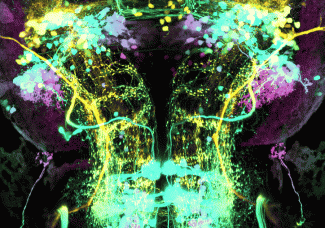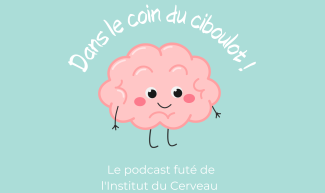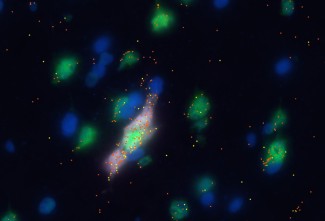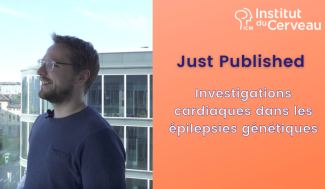Stéphanie Baulac answers to Leon, 9 years old
Epilepsy is a brain disease that often intrigues, especially when you see someone having a seizure. But what exactly is epilepsy? And how can someone who suffers from it be helped? In this new episode of our podcast "In the Corner of the Bolt", we will explain everything with a special focus on children and their families.
What is epilepsy?
Epilepsy is a disease that manifests itself in seizures. These attacks occur because of an electrical disturbance in the brain. Imagine a storm, but inside the brain: millions of neurons, the cells that allow our brain to function, suddenly activate in a disordered and excessive manner. This temporarily disrupts normal brain function.
Neurons as key players
Neurons communicate with each other using electrical signals. Normally, this communication is very well organized. But during an epileptic seizure, this organization disappears, and this is what causes the symptoms observed.
What are the signs of a seizure?
Seizures can manifest themselves in different ways. Examples include:
Crisis with involuntary movements
Some people may have sudden, uncontrolled movements, such as twitching of the arms or legs. These movements are caused by excessive electrical activity in the areas of the brain that control the muscles.
Absences or "disconnection" status
Other seizures, called absences, make the person stand still for a few seconds, with a fixed gaze. She may appear to be "somewhere else" and not respond when spoken to.
Strange Sensations
Some people experience particular sensations before or during a seizure, such as tingling, glare, or perceptions of non-existent lights.
Does epilepsy hurt?
In general, a seizure does not hurt. However, the person may feel very tired after a seizure, as if his brain had run a "marathon". This fatigue may require a moment of rest to recuperate.
Is epilepsy contagious?
No, epilepsy is not contagious. You cannot "catch" this disease by touching or being around someone with epilepsy. Epilepsy can occur from birth, after an accident or injury to the brain, or without knowing why.
How is epilepsy treated?
Antiepileptic drugs
To calm electrical storms in the brain, doctors prescribe medications called anti-epileptics. These drugs help reduce or even eliminate seizures. Most people with epilepsy take these medications every day.
Surgery and other treatments
When drugs are not enough, alternatives exist. Surgery can sometimes help, as can special diets. Each case is different, and doctors tailor treatment to each person's needs.
What should I do if I have a seizure?
If your boyfriend or someone else is having a seizure, you can do the following:
- Calling an adult is the first thing to do.
- Stay calm: do not panic, because the crisis will pass.
- Prevent injury: if the person moves a lot, keep dangerous or sharp objects away. Do not hold it back.
- Be present: when the crisis is over, reassure the person and stay by their side.
Children with epilepsy are like any other
Children with epilepsy can play, go to school, play sports and have friends. Their illness does not prevent them from living a normal life, although some activities need to be adapted. Your support and understanding can make a big difference to them.
As Léon, a friend of a child with epilepsy, said in our example, "I will tell him that I will always be his friend, even if he has this disease!" It is a wonderful message of friendship and solidarity.
To find out more

Epilepsy
The word ‘epilepsy’ originates from a Greek word meaning ‘to seize’, reflecting the sudden and unpredictable onset of seizures. In France, 600,000 people are affected by this chronic neurological disease, which can present with different symptoms...
Read more






